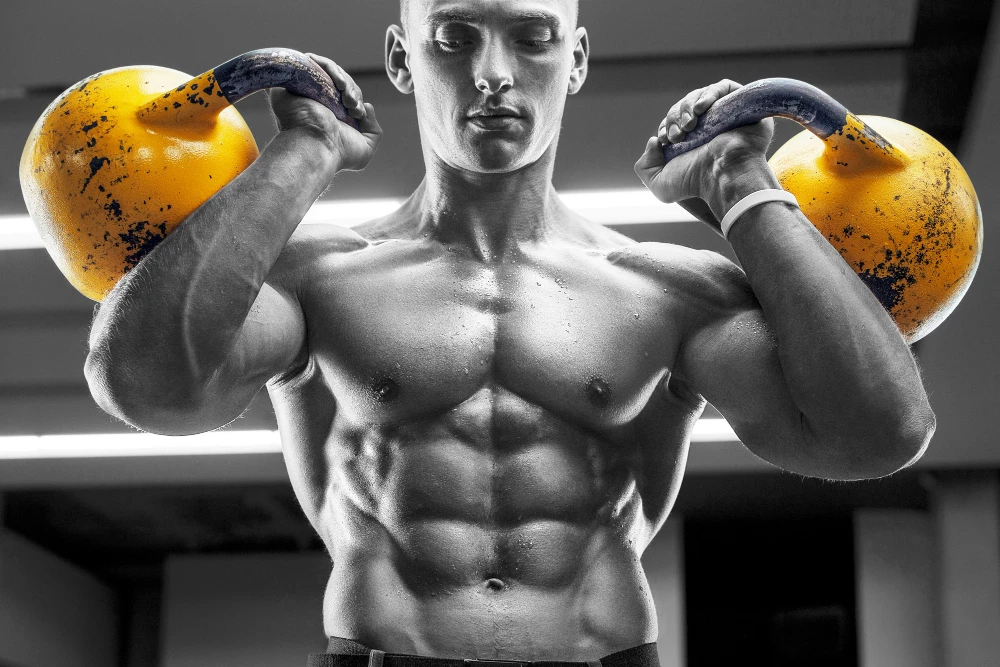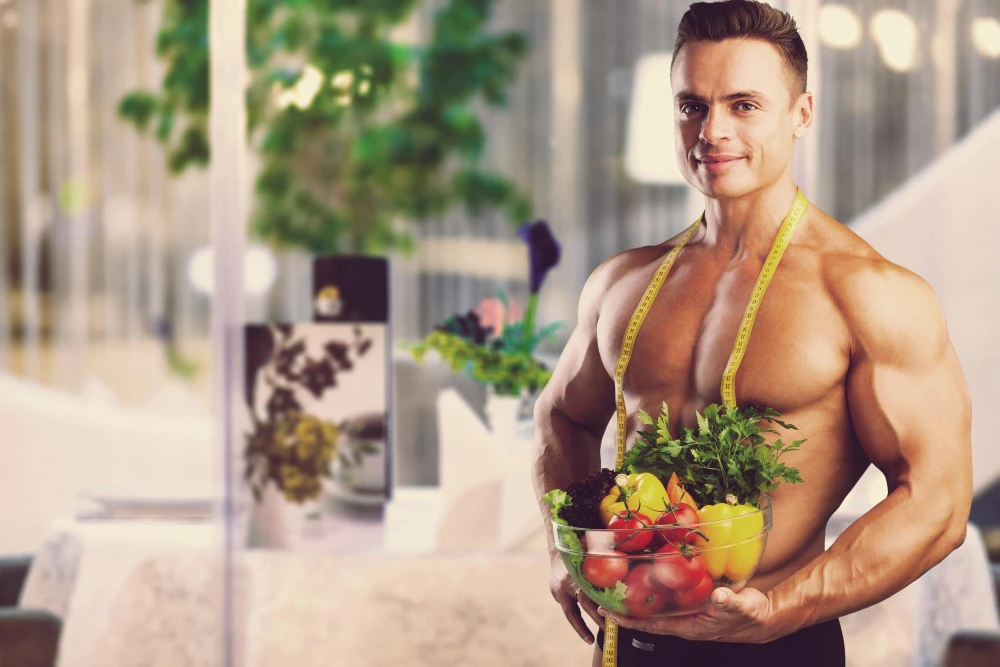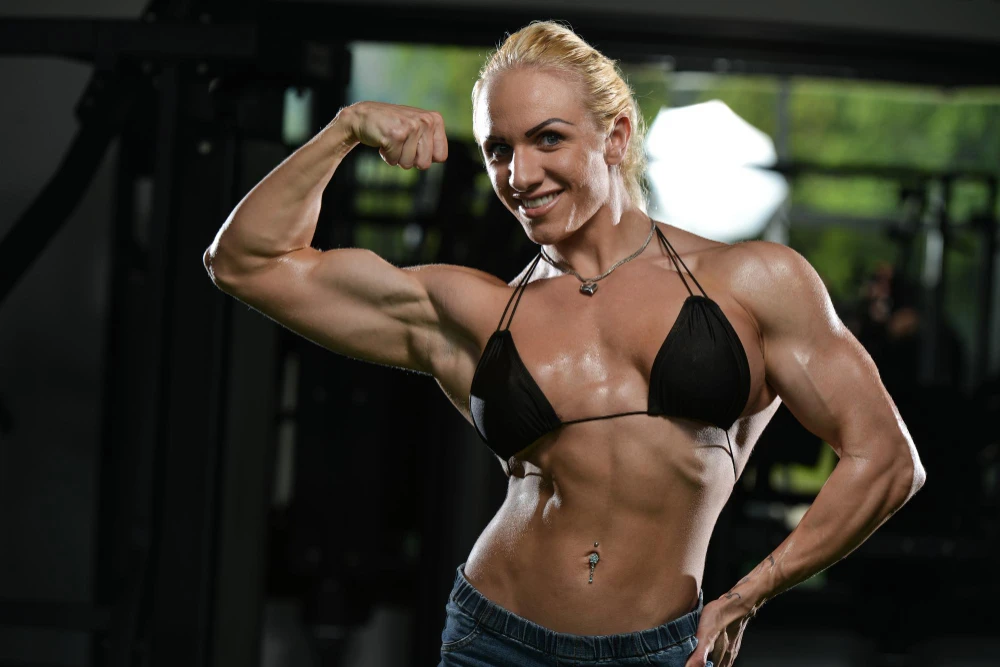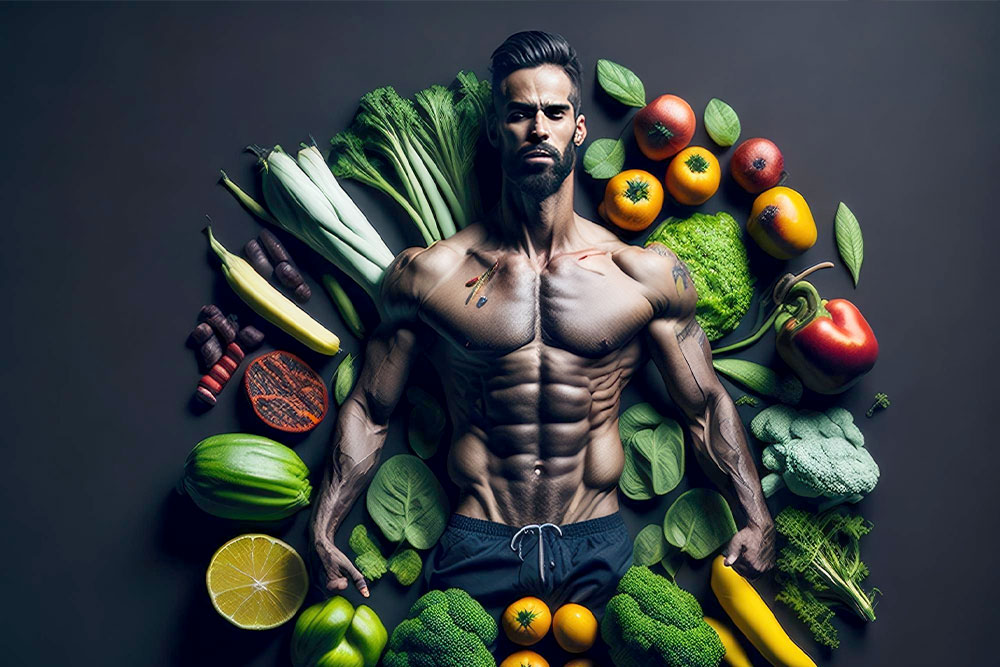Are you ready to take your muscle growth to the next level while following a plant-based diet? Look no further! In this article, we’ll explore the fascinating world of vegan bodybuilding and discover how you can maximize your gains without compromising your ethical beliefs or dietary preferences.
Contrary to popular belief, building muscle on a vegan diet is not only possible but also highly effective. With the right combination of plant-based proteins, nutrient-dense whole foods, and strategic meal planning, you can transform your body into a vegan powerhouse.
We’ll delve into the science behind muscle growth, explore the best plant-based protein sources, and provide you with practical tips and delicious recipes to fuel your gains. Whether you’re a seasoned vegan athlete or just starting your bodybuilding journey, this guide will equip you with the knowledge and tools to achieve your fitness goals while staying true to your vegan lifestyle.
Get ready to harness the power of plants and unleash your full muscle-building potential!
The Rise of Vegan Bodybuilding
The rise of vegan bodybuilding is a relatively recent phenomenon. In the past, it was widely believed that a vegan diet was not sufficient to support the muscle growth and development necessary for bodybuilding. However, in recent years, there has been a growing body of evidence to suggest that this is not the case.
There are a number of reasons why vegan bodybuilding is becoming more popular.
- First, there is a growing awareness of the ethical and environmental implications of animal agriculture. Many people are choosing to adopt a vegan diet for these reasons, and they are also finding that it is possible to build muscle and achieve a high level of fitness on a plant-based diet.
- Second, there are now a number of high-quality vegan protein powders and other supplements available, which makes it easier for bodybuilders to get the nutrients they need. In the past, vegan bodybuilders often had to rely on whole foods to get their protein, which could be difficult to do in the quantities necessary for muscle growth. However, with the availability of vegan protein powders, it is now much easier to meet the protein requirements for bodybuilding.
- Finally, there are a number of high-profile vegan bodybuilders who are inspiring others to follow in their footsteps. These bodybuilders include Nimai Delgado, Torre Washington, and Kendrick Farris. These athletes have shown that it is possible to build a world-class physique on a vegan diet, and they are helping to break down the stereotypes about what it means to be a vegan bodybuilder.
The rise of vegan bodybuilding is a positive trend. It is showing that it is possible to achieve a high level of fitness and muscle growth on a plant-based diet. This is encouraging more people to adopt a vegan diet, and it is also helping to raise awareness of the ethical and environmental implications of animal agriculture.
Understanding Muscle Growth and the Role of Nutrition
To effectively build muscle, you need to understand the science behind muscle growth and the role that nutrition plays in the process. Muscle growth, or hypertrophy, occurs when the body repairs and strengthens muscle fibers that have been damaged during exercise. This process requires an adequate supply of essential nutrients, including protein, carbohydrates, and fats.
Benefits of a Vegan Bodybuilding Diet
A vegan bodybuilding diet can offer a number of health benefits, including:
- Improved cardiovascular health: Vegan diets are typically lower in saturated fat and cholesterol, which can help reduce the risk of heart disease.
- Better digestive health: Vegan diets are high in fiber, which can help keep your digestive system healthy.
- Lower cancer risk: Some studies have shown that people who follow a vegan diet have a lower risk of developing certain types of cancer.
- Weight control: Vegan diets are often lower in calories and fat than animal-based diets, which can help you lose weight or maintain a healthy weight.
- Increased energy levels: Vegan diets are rich in nutrients that can help boost your energy levels, such as iron, B vitamins, and magnesium.
In addition to these health benefits, a vegan bodybuilding diet can also help you build muscle and achieve your fitness goals. Here are some of the key nutrients that you need to focus on getting enough of in a vegan bodybuilding diet:
- Protein: Protein is essential for building and repairing muscle tissue. Good sources of vegan protein include tofu, tempeh, beans, lentils, nuts, and seeds.
- Carbohydrates: Carbohydrates provide your body with energy. Good sources of vegan carbohydrates include whole grains, fruits, and vegetables.
- Fats: Healthy fats are essential for your overall health. Good sources of vegan fats include avocados, nuts, and seeds.
If you are considering following a vegan bodybuilding diet, it is important to talk to a registered dietitian or other qualified healthcare professional to make sure that you are getting all the nutrients that you need. They can help you create a meal plan that is tailored to your individual needs and goals.

Essential Nutrients for Muscle Growth on a Vegan Diet
Here are some of the essential nutrients for muscle growth on a vegan diet:
- Protein: Protein is the building block of muscle, so it’s important to get enough of it on a vegan diet. The recommended daily intake for protein is 0.8 grams per kilogram of body weight, but for muscle growth, you may need to aim for 1.4 to 2 grams per kilogram of body weight. Good sources of protein on a vegan diet include beans, lentils, tofu, tempeh, quinoa, nuts, and seeds.
- Carbohydrates: Carbohydrates provide your body with energy, which is essential for muscle growth. Aim to get about 45 to 60% of your calories from carbohydrates. Good sources of carbohydrates on a vegan diet include whole grains, fruits, vegetables, and legumes.
- Fats: Fats are essential for absorbing vitamins and minerals, and they also provide your body with energy. Aim to get about 20 to 30% of your calories from fats. Good sources of fats on a vegan diet include nuts, seeds, avocados, and olive oil.
- Iron: Iron is important for transporting oxygen to your muscles, which is essential for muscle growth. Good sources of iron on a vegan diet include beans, lentils, chickpeas, leafy greens, and fortified cereals.
- Zinc: Zinc is important for protein synthesis, which is the process of building new muscle tissue. Good sources of zinc on a vegan diet include beans, lentils, nuts, seeds, and whole grains.
- Vitamin B12: Vitamin B12 is important for red blood cell production, which is essential for transporting oxygen to your muscles. Good sources of vitamin B12 on a vegan diet include fortified cereals, nutritional yeast, and plant-based milks.
In addition to these nutrients, it’s also important to eat a variety of foods on a vegan diet to ensure that you’re getting all the nutrients you need for muscle growth. You should also make sure to get enough rest and to exercise regularly.
Plant-Based Protein Sources for Muscle Building
Protein is the cornerstone of muscle growth, and as a vegan bodybuilder, it’s crucial to incorporate a variety of plant-based protein sources into your diet. Legumes, such as lentils, chickpeas, and black beans, are excellent sources of protein and can be included in soups, stews, salads, and even desserts. Tofu and tempeh are versatile plant-based protein options that can be used in stir-fries, sandwiches, and wraps. Quinoa, a complete protein, is a great grain alternative that can be used as a base for salads or served as a side dish. Additionally, nuts, seeds, and plant-based protein powders can be incorporated into smoothies, energy bars, and homemade protein shakes.

Supplements for Vegan Bodybuilders
While a well-planned vegan bodybuilding diet can provide all the necessary nutrients, some athletes may choose to supplement their diet to ensure they’re meeting their specific needs. Plant-based athletes often supplement with vitamin B12, which is primarily found in animal products. Additionally, omega-3 fatty acids, specifically EPA and DHA, can be obtained from algae-based supplements. Creatine monohydrate, a popular supplement for enhancing performance and muscle strength, is also suitable for vegan bodybuilders.
Training Tips for Vegan Bodybuilders
Here are some training tips for vegan bodybuilders:
- Get enough protein. Vegan bodybuilders need to consume a higher-than-average amount of protein in order to build muscle. The recommended daily intake for vegan bodybuilders is 1.6-2.2 grams of protein per kilogram of body weight. You can get protein from a variety of plant-based sources, such as tofu, tempeh, beans, lentils, nuts, seeds, and whole grains.
- Eat a balanced diet. In addition to protein, you also need to make sure you’re getting enough carbohydrates, healthy fats, and micronutrients. A balanced diet will help you fuel your workouts and recover properly.
- Lift weights regularly. Strength training is essential for building muscle. Aim to lift weights 3-4 times per week.
- Focus on compound exercises. Compound exercises work multiple muscle groups at once, which is more efficient for building muscle. Some examples of compound exercises include squats, deadlifts, bench presses, and pull-ups.
- Progressively overload your muscles. As you get stronger, you need to increase the weight you’re lifting in order to continue making progress. This is called progressive overload.
- Get enough rest. Muscles grow during rest, so it’s important to get enough sleep. Aim for 7-8 hours of sleep per night.
- Be patient. Building muscle takes time and effort. Don’t get discouraged if you don’t see results immediately. Just keep working hard and you will eventually reach your goals.
The Importance of Rest and Recovery
While training and nutrition are important for muscle growth, rest and recovery are equally crucial. During rest periods, your muscles repair and rebuild, leading to increased strength and size. Make sure to prioritize sleep, aiming for 7-9 hours of quality sleep per night. Incorporate rest days into your training schedule to allow your body to recover and prevent overtraining. Additionally, practicing stress management techniques, such as meditation or yoga, can help reduce the negative effects of chronic stress on muscle growth.

Let’s Sum Up : Embracing the Power of Plants in Bodybuilding
In conclusion, vegan bodybuilding is not only possible but also highly effective when approached with the right knowledge and strategies. By understanding the science behind muscle growth, incorporating a variety of plant-based protein sources into your diet, and following a well-rounded training program, you can maximize your muscle gains while staying true to your vegan lifestyle. From meal planning and prepping to incorporating supplements and prioritizing rest and recovery, every aspect of your vegan bodybuilding journey plays a crucial role in achieving your fitness goals. Embrace the power of plants and unleash your full muscle-building potential today!



